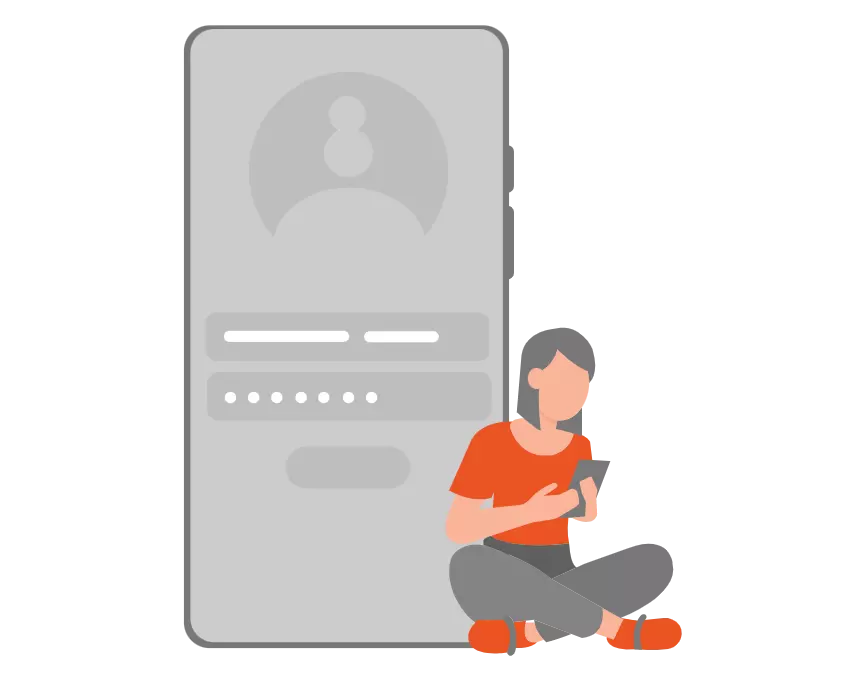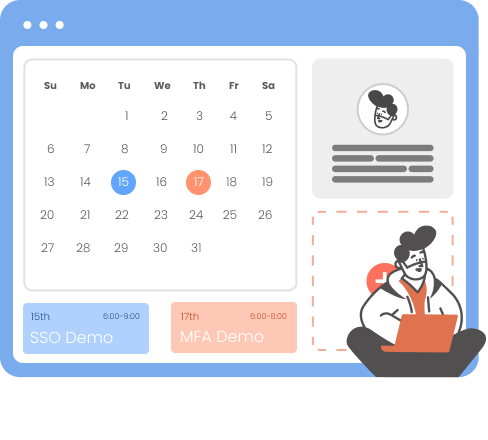Need Help? We are right here!
Search Results:
×Social login, also known as social sign-in or social SSO, is a user authentication mechanism that enables individuals to use their existing social media accounts to log into third-party websites and applications. Instead of creating new accounts and remembering multiple usernames and passwords, users can simply click on a social media button (such as Facebook, Google, or Twitter) to authenticate themselves. Additionally, social login lets the admin gather insightful data based on likes, comments, shares, and posts. This information can be used to understand a user's interests and preferences. By implementing social login to authenticate customer identities, companies can provide seamless login experience to gain long term loyalty from existing and new customers.
Social login is a passwordless authentication alternative regulated by the standards of Open Authorization (OAuth 2.0) and OpenID Connect (OIDC). OAuth enables websites and apps to access data from social networks while ensuring the confidential and secure use of this information.
Social login is a simple process that can be done in just a few steps:
Social login allows users to sign up for social accounts using their social media credentials. This eliminates the need to remember multiple passwords; making the login effortless.
As users do not generate a new set of credentials for an app utilizing social login, app developers are relieved from concerns related to password storage, hashing, and continual management.
Social login allows users to seamlessly share their activities on your website or application with their social networks. This increases social engagement, social referrals, reach, and visibility of your brand.

By accessing users' social media profiles, businesses can gather valuable demographic information, interests, and social connections which can be used for personalized marketing.
By streamlining the registration process, users are more inclined to complete sign-up, leading to higher conversion rates and reduced user abandonment.
Social login enhances the perceived security of your website or application. Users feel confident knowing their information is protected, incorporating trust in your brand and encouraging greater user engagement.
Utilizing social login not only improves the overall experience for businesses and users but also ensures security. However, it is advisable to take extra steps to enhance the security of your social login and authentication procedures.
Identity solutions from miniOrange can be easily deployed in your organization's existing environment.
per month
upto 500 Users
*Please contact us to get volume discounts for higher user tiers.
Single Sign On through, social login can authenticate multiple websites and apps, allowing users to sign up effortlessly.
Social login provides endless customization options for shapes, sizes, colors, and themes, also customize preferred login buttons.
Share blogs, posts, etc. on social media accounts using 40+ social networks and 50+ social media applications with social login.
With our robust integration, users can add Social Login to registration and login pages, comments sections, and more; making it easier for users to create accounts in minutes.
Our Social Login process allows linking with various social media platforms/accounts. Users can associate their email addresses with social media apps that don't disclose email addresses.
Enhance security with a two-step verification option by adding OTP verification, SMS, and Email-based login on top of social login for confirming the identity of your end-user.







"Nahdi wanted to adopt SSO, and they were using Siebel CRM, but it didn't support any SSO protocols. Changing the entire CRM system and transferring data from one CRM to another is a time-consuming job....."
The main difference between SSO (Single Sign-On) and social login is that SSO allows users to log in to multiple applications with a single set of credentials. In contrast, social login allows users to log in to one application using their social media account credentials.
Social login can simplify the registration process for users, as they can use their existing social media account credentials instead of creating a new account. It can also help websites gather more accurate and complete user information, for personalized marketing, and content recommendations.
Social Login allows users to authenticate their identity using their existing social media account credentials, which are then used to create a new account or log in to an existing account on the website. The website can then access basic user information (such as name and email address) from the social media platform to personalize the user experience.
